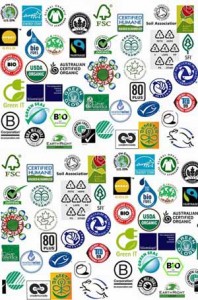
More evidence that low-calorie sweeteners are bad for your health
Studies show that artificial sweeteners can raise the risk of hypertension, metabolic syndrome, type 2 diabetes and heart disease, including stroke.

Continued from page 1>>
Decoding the labels
ORGANIC
As faith in the quality and safety of conventionally produced food has declined, the popularity of organic food has risen dramatically. The UK has six certification bodies in the UK. Of these, the oldest and largest is the Soil Association founded in 1946, which currently undertakes 80 per cent of all certification in the UK. Of all the current food labels, the organic label does more to guarantee food that is healthy for people and for planet.
What the label means
What it doesn’t mean
FAIRTRADE
Fairtrade is a strategy for alleviating poverty by ensuring that producers receive a fair price for their goods and support and education for sustainable farming practices. The Fairtrade label can be found on a variety of goods from coffee and bananas to jeans, jewellery and flowers.
What the label means
What it doesn’t mean
CONSERVATION GRADE
A UK-based agricultural system, that aims to increase the number of wildlife species on farming land, without compromising farming sustainability. Under this scheme farmers must set aside 10 per cent of their land to create habitats for wildflowers, birds, insects and small animals. While indicative of a more environmentally-friendly product, it is not the same as organic.
What the label means
What it doesn’t mean
MARINE STEWARDSHIP COUNCIL
Established in 1997 the MSC label aims to promote sustainable fishers by: maintaining and re-establishing healthy populations of targeted species; maintaining the integrity of ecosystems; developing and maintaining effective fisheries management systems, taking into account all relevant biological, technological, economic, social, environmental and commercial aspects; and complying with relevant local and national and international laws, standards and agreements.
What the label means
What it doesn’t mean
FREEDOM FOOD
The Freedom Food mark found on eggs, dairy, meat, poultry and salmon products means the animals have been reared, handled, transported and slaughtered to RSPCA standards which include freedom from hunger and thirst, discomfort, pain, injury or disease, fear and distress as well as the freedom to express normal behaviour. They apply to both indoor and outdoor farming methods but are aspirational rather than strict requirements. Certification won’t be withheld if these aspirations are not fully met. This means that in some cases Freedom Food standards is little better than the minimum legal requirements.
What the label means
What it doesn’t mean
RED TRACTOR
A food industry certificate that means that meat, vegetable, fruit, flour, sugar and dairy products have been produced to the minimum standards of welfare, environmental, and hygiene required by law
Use of the logo is granted by Assured Food Standards, man agribusiness umbrella group representing the interests of the National Farmers union, the Meat and Livestock Commission, Dairy UK and the British Retail Consortium. In 2005 the British flag was added to the logo to denote products that have been “produced, processed and packed in the UK”.
What the label means
What it doesn’t mean
LEAF MARQUE
An industry funded certification scheme that aims to encourage efficient farming systems good farming practice and covers areas such as soil management and crop nutrition, pesticide usage, pollution control, waste management, water and energy efficiency and the protection of wildlife and landscape. LEAF standards fall somewhere between the minimum required by law and the high organic standards of the Soil Association.
What the label means
What it doesn’t mean
Adapted from Stuffed: Positive Action to Prevent a Global Food Crisis by Pat Thomas. Available from the Soil Association here.

Please subscribe me to your newsletter mailing list. I have read the
privacy statement